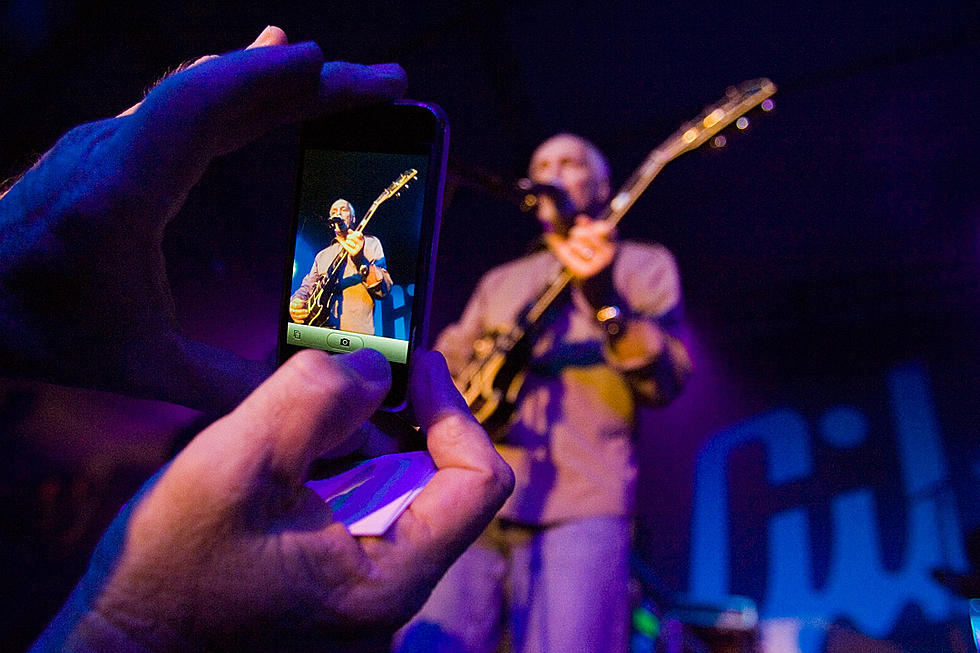
New Apple Technology Could Prevent Videos and Photos at Concerts
Apple has just been awarded a patent on a new technology that could be used to prevent fans from taking photos and videos at live concert events.
Pitchfork reports that Apple first applied for the patent in 2009. The proposed technology would allow Apple to begin manufacturing a sophisticated camera compatible with Apple devices that would be able to detect not only visible light, but also infrared data. That could potentially be used to disable the device's recording capabilities.
As the New York Times reported in 2011, the technology has practical applications in fighting piracy for the film and concert businesses. The venue could simply emit an infrared signal from the screen or from the stage of a concert that would alert the device to disable its recording capabilities, which would prevent recording movies or live events and violating copyrights by sharing them online.
The actual patent filing includes an illustration of a band performing onstage, while a camera screen reads, "Recording disabled." The technology could be used to block iPhones and other Apple devices from taking photos or videos not only at theaters and concerts, but in other sensitive areas.
The technology also has more user-friendly applications; for instance, the patent says it could be helpful in a setting like a museum, where the infrared signal could automatically send information about an exhibit to an Apple device.
While many performers don't mind or even encourage social media sharing at their concerts, others dislike it and have tried to fight it over the years. Kellie Pickler is among the artists who object to photos and videos at live shows.
“There is no eye contact anymore,” the singer says. “At my concerts when I’m performing, sometimes all I notice are people’s phones. It’s very distracting. I think about the people who paid all this money to be in the front row, and they’re holding up their phones. They could have sat at home and watched me on YouTube.”
Pitchfork points out that many new patented technologies never actually come to market. Apple declined comment when Pitchfork reached out.
See the Nastiest Lawsuits in Country Music


